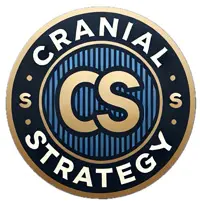AI Taking Jobs: The Biggest Workforce Shift
AI taking jobs and is continuously transforming the job market at an unprecedented rate. The rise of automation is leading to job displacement across multiple industries. Many professionals feel uncertain about their future, as AI systems continue to evolve and outperform human workers in several areas. The impact is not limited to low-skill jobs. AI is also changing roles in medicine, finance, law, and creative industries.
Companies are adopting AI-driven solutions at a fast pace. They are replacing traditional roles with machines that work faster and more efficiently. This shift is not slowing down. Instead, it is only accelerating. More importantly, AI is constantly improving, which means its ability to replace human workers will continue to expand.
The Reality of AI Taking Jobs
Many industries are now relying on AI for decision-making. For instance, automated systems can analyze large amounts of data in record time. Moreover, they can generate reports in seconds, replacing the need for human analysts. They can even perform medical diagnoses with greater accuracy than experienced professionals.
Financial firms are using AI to manage investments, helping companies make data-driven decisions with minimal human intervention. Law firms are employing AI to review contracts and process large amounts of legal information in a fraction of the time it takes human lawyers. Creative industries are using AI to write articles, design graphics, and even compose music. AI is no longer just a tool, it is actively replacing many job roles that were once considered secure.
The challenge is clear. AI is here, and it is taking jobs. Professionals must adapt, or they risk being left behind. This technological shift is forcing individuals to rethink their careers, their skill sets, and their long-term professional strategies.

Shifting the Job Industry with AI Boom
AI Taking Jobs: Why Strategy is the Answer
AI taking jobs is an unavoidable reality, but it does not have to be a personal threat. The key to staying ahead is strategy. Strategic thinking allows professionals to leverage AI rather than be replaced by it.
Strategic Thinking vs. AI
AI is powerful, but it lacks critical thinking. Additionally, it cannot understand human emotions, nor can it anticipate human behavior. It cannot think ahead in a way that is creative and adaptive. Machines rely on existing data patterns, whereas humans can innovate and create new strategies that AI cannot predict.
Strategic thinking involves:
- Understanding trends and making informed decisions before AI disrupts an industry.
- Seeing patterns in the job market and predicting outcomes.
- Innovating solutions that AI cannot generate on its own.
- Leveraging AI as a tool rather than fearing it as a competitor.
Professionals who develop these skills will always have an edge. AI can process information at lightning speed, but it cannot replace human judgment and vision. Those who sharpen their strategic abilities will remain relevant and continue to thrive in an AI-driven world.
AI Taking Jobs: Who is at Risk?
Anyone who relies on routine tasks is at risk. AI is designed to handle repetitive work with extreme efficiency. Many workers underestimate how quickly AI is advancing and fail to recognize its full potential. Here are some roles that AI is already impacting:
- Customer service: AI-powered chatbots are replacing human agents, reducing the need for customer support representatives.
- Data entry: Automated systems are handling data processing with near-perfect accuracy.
- Medical diagnostics: AI is analyzing medical images faster and more accurately than radiologists.
- Legal research: AI is scanning contracts and legal documents in minutes, replacing paralegals and junior attorneys.
- Finance and investment: AI is making stock market predictions and optimizing investment portfolios with minimal human oversight.
- Content creation: AI is writing articles, generating digital content, and even composing music.
If your job involves a predictable workflow, AI can do it better. The solution? Develop strategic skills that make you irreplaceable. AI cannot replace critical thinking, leadership, and human creativity yet. Those who build strategic abilities will always have a competitive advantage.
AI Taking Jobs: How It Shapes Career Paths
AI is reshaping career trajectories in ways that many professionals never expected. The job market is evolving faster than ever, forcing individuals to adapt or risk becoming obsolete. Companies are prioritizing employees who can think ahead, as strategic professionals are more valuable than ever.
Employers are looking for professionals who:
- Firstly, Understand how AI is reshaping industries.
- Secondly, Can develop strategies to integrate AI into their work and improve productivity.
- Thirdly, Have the ability to lead in an AI-driven world and train others to use AI effectively.
- Fourthly, Can identify emerging job roles that AI cannot replace and position themselves for these opportunities.
Without strategic skills, professionals will struggle to keep up. Those who fail to adapt will find fewer career opportunities, while AI continues to create a gap between those who evolve and those who do not.
AI Taking Jobs: The Role of Cranial Strategy Program
Cranial strategy is the secret weapon for professionals who want to stay ahead of AI. It is the ability to think critically, adapt, and lead in a rapidly changing world. It ensures that professionals remain valuable in an AI-driven workforce rather than becoming obsolete.

Master Strategic Skills through Cranial Strategy Program
Why Cranial Strategy Matters
Cranial strategy is about mastering the art of deep thinking, problem-solving, and adaptability. It involves sharpening your mental agility, enhancing decision-making, and developing foresight. With AI taking jobs at a rapid pace, professionals must elevate their thinking to a level AI cannot reach. Cranial strategy program helps individuals identify unique opportunities, navigate career transitions, and stay relevant in an AI-dominated world.
By training the brain to think ahead, anticipate shifts, and create value in ways that AI cannot, professionals safeguard their careers. It is not just about intelligence, it is about strategic intelligence. The ability to synthesize information, connect ideas, and make calculated decisions will be the defining factor in career success. Those who develop cranial strategy based skills will lead industries, while those who ignore it will struggle to find their place. AI is powerful, but human strategy remains unmatched.
Moreover, cranial strategy program gives professionals the ability to manage AI rather than be managed by it. Instead of seeing AI as a competitor, those with strategic intelligence will use it as an ally. They will guide AI-driven innovations and ensure that human decision-making remains central to the process. AI may be taking jobs, but those who harness the power of cranial strategy will shape the future workforce rather than become casualties of automation.
The Future of AI and the Workforce
AI will continue to evolve. Furthermore, it will automate tasks, replace workers, and introduce new challenges in the job market. However, history has shown that those who adapt always thrive. The workforce of the future will not be one where AI eliminates all jobs. Instead, it will be one where AI enhances human potential, if professionals have the right strategic skills to capitalize on it. AI taking jobs is a reality. But those who develop strategic skills through cranial strategy program will be the ones leading the future workforce.
References
AI is replacing human tasks faster than you think | CNN
Hype Or Reality: Will AI Really Take Over Your Job? | Forbes

